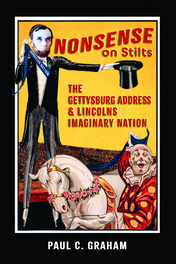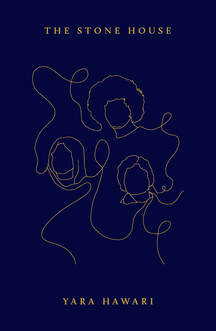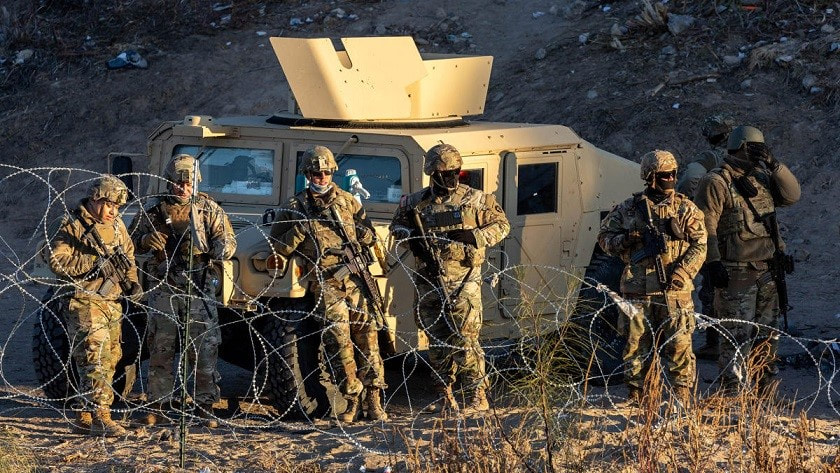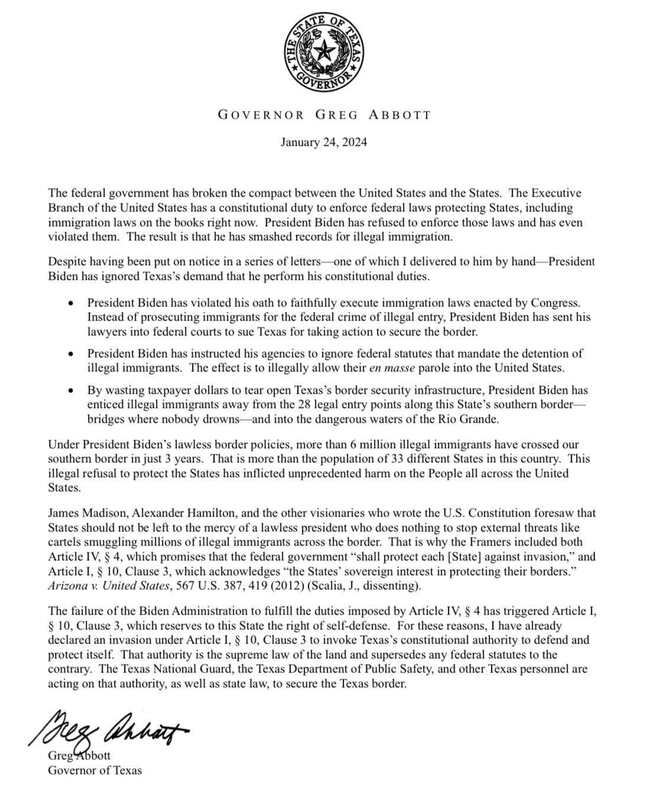 In trying to set the record straight on a few old-fashioned American myths, Paul Graham has perhaps inadvertently created a firestorm. The first Yankee Bot 1-star review at Amazon will tell us that anyone daring to protest the words or genocidal tyranny of the smallest tall man in history is just mad that the South lost its war to preserve slavery! Don’t take my word or someone else’s hasbara for it; we have the high authority of Jezebel political postmodernity to trust. When asked, for maybe the second or third time, about the causes of the “Civil War” in the 1860s, while priming the glow plug on her broom, Nimarata Haley wisely proclaimed, “Of course the Civil War was about slavery.” Of course! Come on, Paul! Let all this law and truth and history and being correct stuff go, brother. But being honest, we can’t let it go, can we? Paul Graham is a longtime champion of the Southern Tradition and Western Civilization. A native son of South Carolina, he has served as an academic, a popular spokesman, an editor, and a writer whose work always aims to clarify the truth, in general, and specifically as it relates to propounding the still-viable cause of the Old Confederacy. He is the author of Confederaphobia and a co-founder of Shotwell Publishing. He, my editor, friend, and brother, has a certain way with words. His legendary guitar skills, strikingly reminiscent of Mark Knopfler’s transitioning period between the 70s and 80s, may be the subject of future review… He also nails, dead to rights, Evil Abe, along with the language, law, history, and spirit of the ancient American association and the subsequent Global Amerikan Empire. Much of what Graham presents is known, or rather, was known—and accepted—as common knowledge about American history. Today, much of it will come as a complete and shocking surprise to various members of our, uh, less-educated society. For some, it will serve as a coherent summary and reminder of the way things actually were or are. And I suspect everyone is in for some degree of wholly novel education thanks to Graham’s ardent scholarship. Why? Because in part, some of the material Graham explains was originally kept secret from the public, whether for three decades or for fifteen! This suppression of information is from an allegedly free and open “democracy” based on “rules” or some such. And, yes, the same nefarious machinations are in play right now, literally the week I am typing this review, as the Washington cartel seeks to persecute, torture, and probably kill Julian Assange for the “crime” of exposing more Washingtonian secrets of the extremely bloody and dangerous kind. And again, yes, the railroading of Assange by the terror firm of Obama, Trump, and Brandon is exactly the kind of thing their 1860s predecessor would have done and did, in fact, do. As with Assange’s pitiful case, where some people will side with Fred Burton, et al, and others will side with human dignity and veracity, regarding America’s many founding fables, I suspect most people’s thoughts and beliefs are at least somewhat solidified. Yet and still, Paul Graham may have found a way, a very entertaining way at that, to open a few minds if not outright change them. Either will be an astounding feat. In the aptly named first chapter of Nonsense On Stilts, “Our Fathers Did No Such Thing,” Graham exposes one of many of the lies of Lincoln by simply quoting the great liar’s own famous lie: “Four score and seven years ago, our fathers brought forth on this continent, a new nation…” Words, whether deployed sincerely or maliciously, have meaning. Graham wisely begins his book by defining his use of “nation,” in accordance with and so as to explain and refute Lincoln’s deception. My friend and the great destroyer both refer to a nation-state of the French Revolutionary, Enlightenment, or Westphalian kind. This definition does not necessarily or directly touch upon the ethnosocial or cultural anthropological notions of a related people, bound by blood, language, belief, tradition, and so forth—an extended family. There was, in some regards, a genuine if scattered American nation, a kind of ethnostate. It was an extension of the British or English nation. It still exists today, though it is now a distinct minority and even its best-expanded proxy claim teeters at the edge of becoming outnumbered in the boiling, pot-melting stew of chefs Emma Lazarus and Emanuel Celler. It is my view that Anglo-America would have been better served by the kind of more overt clarification or understanding that founded the Russian Empire of old and preserves the modern Russian Federation today. (As for Nonsense On Stilts, my view is neither here nor there.) Graham, like Lincoln, refers to the central government of the land, the master state. And that thing did not legally exist and despite various protestations today, can never validly exist. Don’t believe me? Read the book! Graham brings the irrefutable proof, page after page, truth after truth, all set down in an engaging and, as needed, humorous sequence. In doing so, he masterfully and meticulously exposes the lies and word spells, fictions, contradictions, and fallback enforcing violence that form the basis of American political history and that created the hateful Amerikan Empire. Even in the complete absence of slavery and war among the States, America would have still had myriad problems, owing in no small part to misapplied or misinterpreted rhetoric (whether authored by Lincoln, Jefferson, Madison, or others). Graham corrects the collective course. Nonsense On Stilts is largely a dissection and refutation of Lincoln’s famed Gettysburg Address, a lofty screed but one of purely rhetorical falsehood. As Graham notes on page 81: “The Gettysburg Address is certainly among the most eloquent alibis in history, but it is a false alibi.” He shines the plain light of truth on page 16: “As much as Lincoln may have wished it to be the case, no new nation was brought forth on the American continent ‘four score and seven years’ before his speech.” He explains exactly why there never was a proper political American nation by exposing the founding diversions that foisted on the American people the central government of the Constitution of 1787 and the fake nation it lied into pseudo-existence (a very messy and dangerous thing, rather poorly done). Graham also does an excellent job telling an abbreviated version of American political and general history, from the founding of the first permanent English settlement in Virginia to the causes and actions behind the reluctant movement towards independence from the English King to the Declaration of Independence itself to the vastly superior (compared to the beast of ‘87) Articles of Confederation. Along the way, he explores the high treason committed (in secret) at the Philadelphia “constitutional convention”. In short, the representatives were dispatched to perform minor remodeling and ended up building something entirely new and different. And worse. The exact reasons why they were ratified in their treason instead of being hung remains a speculative mystery. I speculate that most Americans know little to nothing about the entire affair. They will know after reading Graham. They’re in for more lessons too. For instance, some will be surprised to learn for the first time that the Bill of Rights was tacked on as an afterthought, and a rather weak one at that. The founding tale of America, as mistold in so many high school civics classes, is in truth only a story of Enlightenment necromancy which Graham properly explodes and dismisses. As for Lincoln’s pertinent part, Graham describes his actions, page 60, as “illegal, immoral, and (saddest of all) unnecessary.” In so describing, Graham also explores the paradox of Lincoln’s evil, by showing that the cherished Constitution, a fraud, though accepted as the “holy” founding fraud by many, contains no mechanism for holding the States in perpetual union. There was not and is no permanent national “nation.” As such, from page 63: “Because there was never a nation conceived in the way described by Lincoln, or dedicated to any abstract proposition such as equality, there was no legal or moral justification for Lincoln’s invasion of the Southern States (period, full stop).” Put that on your broom and fly it, Nikki. Further, from page 68:
Legal arguments against States leaving the “perpetual” union died when the treasonous fraud of the Constitution replaced the Articles. But Lincoln’s was not a legal argument, it was one of imperial force. Graham understands this, writing on page 22:
The more things change, the more they stay the same. States in rebellion. Gulf of Tonkin. Afghanistan. Ukraine. Assange. Etc. With a nod to Dr. Donald Livingston, on page 84 Graham notes: “We no longer enjoy self-government and the rule of law at the national level and the only hope for restoring those things is through the States as units of the federal system.” This observation is backed up by observable reality and it was even endorsed by none other than Russian President Vladimir Putin in his February 2024 interview with Tucker Carlson when, based on his experience with so many American leaders, he suggested those leaders are not really in charge of anything. Similarly, the American people are not in charge of their own political affairs. Call it what one will—too many like to yell, “Democracy!” or “Republic!” as if those words mean anything anymore—but the American experiment has, like Dr. Frankenstein’s monster, morphed into something terrible and beyond control. It is, as I like to say, not really any form of government. Rather, it is a satanic cult generally masquerading as a terrorist organization. Wounded Knee. Tuskegee. PATRIOT ACT. Gaza. Et cetera. Before providing a long, relevant, and eye-opening appendix of critical documentation, Graham concludes, on page 102:
Again, I think he has a decent shot at fostering such skepticism and realization. I will conclude with a few observations about a few related matters. First, the problems that confound America today are descended from those that have vexed this land from its inception. America and Americans have always had a problem with identity. It wasn’t always so evident or pronounced, for so long being buried under prosperity, growth, or turmoil. But the problem was always present, a byproduct of the same issues that even plagued pre-colonial England before the founding of Jamestown in 1607. As for that year, somewhat in defiance of certain circles, I urge a little caution and inspection. Let the reader ask himself why America, so often referred to as Christian, has so little official reference to Christianity. There is no such reference in the Declaration of Independence, the Articles of Confederation, the 1787 Constitution, or even the Confederate Constitution to the Trinitarian God, Christianity, or Jesus Christ. The Declaration contains a lone bare mention of “Nature’s God” and the Confederate Constitution does, in its Preamble, invoke, “Almighty God.” But that’s it. America, regardless of how one defines it, was a grand experiment in Enlightenment philosophy brought to life. The main purpose of the Enlightenment was always to weaken and destroy Christianity and to substitute for it an allegiance to worldly power. Further to my dated point, the legacies of 1607 Jamestown and 1620 Plymouth are both really chronicles of the rapacious exploits of conjoined Seventeenth-Century hedge funds. Both were chartered into existence by a neo-Kabbalistic heretic and widely alleged sodomite. They were primarily designed to enrich certain private monied interests while placing constraints and expenses on the English people to say nothing of the treatment of the Native Indian Tribes. As such, and as no corrective actions have ever been undertaken in America or England, is it any wonder that our countries are today ruled by outright luciferians? That is a question that all English and European-descended Americans should carefully examine. I suspect that many will not seek an answer, at least, not yet. I also suggest, with a degree of optimism, that other good people in the collapsing United States would also benefit from such introspection. The Empire is at its end and is already rapidly disintegrating. When whatever final processes take place, all people within current U.S. territory—Black African Americans, Hispanics, Asians, Native Indians, etc.—would be wise to be ready to rebuild and to be on guard against the kind of malice and misdirection that brought down older America. I had one specific case and poster woman in mind, a rare political mastermind who can cook some mean fiction. For now, I shall keep that example to myself. For her part, she undoubtedly knows what I mean, having lately suffered but a continuation of the long-standing American tradition of lies, deception, and false rule which is now visited upon new demographics. Without caution and intervention, there will be much more of it. I go so far as to suggest people outside America and even outside the Combined West will also benefit from a little Nonsense on the brain. Ergo, to begin or reignite the thinking process in defense of genuine freedom, peace, and stability, I highly encourage all concerned and civilization-minded people to consider Paul Graham’s worthy and groundbreaking work. Whoever and wherever you are, do yourself a favor and order Nonsense On Stilts today. Being a staunch proponent of multi-bibliotheca, I also suggest Graham’s book pairs very nicely with a slightly different kind of book, The Stone House, by Dr. Yara Hawari. Both deal with the phenomena of real people afflicted by fake law, the overcoming of which shall be a great cause for celebration. Cheers, and pleasant readings! Graham, Paul C., Nonsense on Stilts: The Gettysburg Address & Lincoln's Imaginary Nation, Columbia: Shotwell Publishing, 2024.
12 Comments
February is rolling steadily along. And we’ve already had two rather important conversations regarding world affairs. While the MSM would rather most people not know about either, somehow at least one has already managed to receive generous coverage. My comments will therefore be brief. Vladmir PutinI like Tucker Carlson, I really do. He provides vastly superior reporting, investigation, and commentary than virtually any other mainstream Western journalist. It is also my opinion he is nonetheless an intel asset, perhaps the ultimate gatekeeper. I’ve explained this before and need not repeat myself. Two or three times during their recent interview, President Putin appeared to show support for my opinion. The interview can be watched or listened to via Tucker’s webpage. The Kremlin provided an English transcript. If one watches the video, then one will surely be intrigued by the charming thin red string bracelet Tucker sported on his left wrist. I assume one of his children gave it to him, perhaps the product of a school crafts project. [Editor's note: Some conspiracy theorists have other explanations for the red string bracelet sported by many celebrities.] My theory is that Tucker was dispatched by someone to do this interview at this particular point in time. I think more level heads in places like DC know Project Ukraine is lost and they want to find an off-ramp, save face, and move on. Part of that involves having dull-witted Westerners forget the lies they’ve been told the past two years while accepting new lies about Iran, Texas, or Marvin the Martian. Another part is or was to put a friendlier human face on Putin. I think the plan failed because Putin came off as too human, too honest, and too intelligent. The best-laid plans of rats and clowns and so forth. The dispatchers did not foresee this possibility because they are evil and stupid. Regardless, the failure led to many potentially positive developments. For the role he played, Tucker is to be thanked. As is Putin. Nothing Putin said about more recent matters came as any surprise to anyone who has been following the events in and around Ukraine as they are and not as they have been misreported by the MSM. Of course, I don’t think Putin directed his remarks at the awake and aware Westerner. Nor was he speaking to his own people, most of whom know and have known exactly what is going on. As for the Russian people, the witch Killary Klinton inadvertently told the truth for once through one of her malicious lies: She said Russians were making fun of Tucker’s arrival. They were laughing, not at Mr. Carlson, but because the spectacle and his name reminded them of another “Carlson.” I think one part of Putin’s target audience was the wicked leadership of Clown World. This was in large parts a victory address, a warning, and a goodbye. Many do not know or want to know, but Putin is a bit of a “liberal” and an eternal optimist. He may have been the absolute last man in Russia pulled into the universal camp in favor of letting go of dealing with the nefarious West. Still, his words held out some hope for the future—his comparison of the bifurcated economy and geostrategic order to the human brain, for instance. Most of what he specifically said will be utterly lost on the average Westerner, particularly the average American, who has neither the attention span to listen nor the intelligence to understand. Yet and still, there was a distinct benefit as to and for that large demographic. Even if Sally Sue only listens and watches for three minutes and even if she understands none of the substance presented, she will necessarily be left with the impression that, regardless of his actual veracity or intentions, Putin has all of his marbles. He is capable of explaining his coherent thoughts in a manner serious or jovial and extemporaneously without the help of notes, cues, or a teleprompter. He comes off as likable, honest, and very much a real leader. She will invariably contrast him to whatever pathetic slimy excuse of a leader she has to put up with. She will begin to think just a little. I saw an informal poll that indicated 93% of normies trust Putin over the Clowns. That is a very positive development. Perhaps a very important recipient of what Putin said is the kind of Western man who is smarter than average but has not been paying close attention. He, more keenly than Sally Sue, will sense the truth in what he’s told. And there was a clear message for him from Russia’s President. The Western man does not control his government nor his elected leaders, those leaders do not serve him, and the fake leaders are not in control of anything. There’s nothing he can immediately do about it, but at least he now knows. As G.I. Joe used to remind us, “Knowing is half the battle.” The great hope is that as the West disintegrates, he and his kind will be able to make certain moves and adjustments. Once the dust settles, he will be in a better position to rebuild while making certain to firmly exclude the deviants who destroyed Western civilization. At that point, he may approach Russia and the rest of the world as a friend and equal. There’s a lot of hope in that notion! Hind Rajab Unlike Vladimir Putin, most people have never heard of little Hind. She was not a president or a person of great global importance. In her defense, she never had the chance, being only six years old (by some accounts, only five). However, a few weeks ago, she also gave an interview via telephone to the Red Crescent immediately following her family’s murder by the IDF as part of the occupying Zionists’ ongoing genocide in Gaza. Some of her panicked words are included in THIS VIDEO (which is extremely upsetting, be warned). It is unclear exactly how Hind died, at least to me. The most likely causes of her death would be trauma, shock, cold, dehydration, or starvation. Everyone else with her died of bullet wounds. The two paramedics sent to rescue her were killed nearby when their ambulance was hit by a rocket or artillery shell. I would have much rather seen such a grizzly fate fall upon someone more deserving like Bibi the Butcher or Lindsey “Level the Place” Graham. But such is life and death. As the ICJ considers new and incontrovertible proof of Israel’s extermination of Palestinians, I would encourage them to also look at the words and deeds of those behind the shock troops. (The people who lied to you about Putin, would suggest Hind was a “terrorist.”) God is Hind’s vindicator too. This piece was published at Perrin Lovett on February 14, 2024.
Herein I discuss and cite to: Hawari, Dr. Yara, The Stone House, London: Hajar Press, 2021 (electronic-copy). The Stone House was a New Arab Book of the Year in 2021. Please read their excellent Book Club review by Aisha Yusuff. Hajar, the entire team, did remarkable work in bringing the book to the public, describing it as, “A vivid, haunting tale of intergenerational trauma and survival under Israeli occupation.” It is that, and more; it will make the conscious, honest reader sad, remorseful, and very, very angry. At the same time, it will make the reader laugh, rejoice, and give thoughtful praise. Be forewarned that Hawari’s book provides an extended and tantalizing ride into the heart of human thought, emotion, and behavior. For readers of almost all intellectual or situational knowledge levels, deep learning and enhancement are offered. None of this amounts to a small feat for a novella of only 96 pages, a shorter work with a tremendous punch and follow-through. All of it is a great credit to the author. That she has accomplished so much in a debut book is astounding and speaks to her unusual skill, talent, and preternatural gifts. I discovered Dr. Hawari via her powerful writing for Aljazeera. Doctor Hawari has earned her title, undoubtedly through years of toil and perseverance, with a PhD in Middle Eastern Politics from the University of Exeter, United Kingdom. In addition to writing for Aljazeera and other outlets, she is a co-director at the Palestinian think tank, Al-Shabaka. Her expert knowledge and professional methodologies must have greatly assisted her in developing The Stone House. An academic quality, though certainly not one of the mundane ordinary, shines through each page and section. But there is something far greater at work. This is the story of her people and, more exactly, her own family. Three generations, from her father to his grandmother, are chronicled in gripping, surprising, and unsurpassable fashion. I note at the end the author herself makes a brief, twiddling appearance—a delightful kick! Her book, certainly a very personal endeavor, is important for many reasons. This was previously noted in a review for Mondoweiss by Haidar Eid, another worthy survey to consider. One thing that will quickly jump out at the even moderately aware reader is that the conjoined, multi-decade-spanning tales presented in The Stone House are eerily similar to the current-day news and commentary articles published by writers like Dr. Hawari. That is because what is happening in Gaza and Greater Palestine today, the same as has happened all of my life, is but the sad continuation of a colonial saga that has been, as noted recently by Hamas, in progress for over 105 years. The reader will painfully note the similarity between portrayed family massacres and uprootings during the Nakba and those during Israel’s current war of genocide. But across the century-plus of death and destruction, a sense of optimism, defiance, and civility never leaves the survivors, God bless them. I recently watched a micro-documentary from the Guardian that relayed the life and times of a seven-year-old girl and her family in Gaza. Their plight is bleak. Yet living out of a tent and the bed of a pickup truck, the family exhibits better familial cohesion and more expressed happiness than their average counterparts in the suburbs of the United States. Perhaps facing death brings a sense of urgency to living. Or perhaps something higher factors into the equation. Hawari’s story begins on a school bus in 1968. The author’s then fifteen-year-old father, future archaeologist, professor, and museum curator, Mahmoud, is about to embark on a journey of revelation, across a stolen, occupied country, to Jerusalem. This is Mahmoud’s story, as he undertakes his trip, in the company of other children, with his uncle, Nawaf (by chance, also only fifteen). They discuss and view their corner of the world during events they do not quite fully understand but of which they are sorely cognizant. Mahmoud glances out the bus’s window and visually greets his mother, Dheeba, who has come down to see her son and baby brother off on their excursion. Once they depart, her story begins. Dheeba, unlike her fallah (farmer) husband, is a Bedouin, known locally, colloquially as Dheeba al-Badawiya, or, “the Bedouin.” For the author, and for me, this terminology held significance. This story delves deeper into the nature of the family’s travails during and after the Catastrophe, the Nakba. When the bus leaves, Dheeba walks to her mother’s house to discuss the events of the day. With womanly talk and domiciliary horticulture, so starts Hamda’s story, the third and final part of the book, which partly relates to the tumultuous existence of Palestine before the departure of the British and the coming of official, earnest Zionist terror. The whole story covers approximately six decades, from the end of Ottoman rule, through the treacherous British period, until just after the 1967 Six-Day War or, to Palestinians, “the Setback.” The chronology is generally reversed, with various jumps between periods. I encourage any reader to belay an attempt at mentally (pre)ordering events and to merely proceed with a laissez-faire perusal; simply release conscious logical compartmentalization and let the story tell itself—which it does beautifully. In exchange, in addition to the wonderful memoir, diversified facts are presented in eloquent clarity and with an emotional, heartfelt touch. Per my habit of discussing literary “flow,” I say The Stone House moves like the River Jordan, with many twists, yet always effortlessly carrying the reader along. And just as with the Jordan, ere the end there is “salt” for the reader’s eyes and mind. Again for a shorter work, it is simply overflowing with ideas, moments, horrors, inspirations, and facets that leap into the brain and stick there. I was repeatedly struck by certain super-heterogeneous commonalities Hawari presents. John Wayne’s popularity, for instance, caught my attention and my fancy. So too did many other revelations, more than a few of which the average Westerner might not have previously considered. The story is largely set in the ancient town of Tarshiha, which the occupiers call Ma'alot or Ma'alot-Tarshiha. This titular shifting reflects the trend, painstakingly walked through by Hawari, of the Zionists renaming or reconditioning everything they do not destroy. Still, despite their worst efforts, native history and culture live on. Tashiha is and was a “mixed” town, being, the Jewish migrant residents aside, almost entirely Muslim and Christian. Many, perhaps most Westerners, certainly most Americans, do not know (or, it seems, care) that there are Christian Palestinians and Arabs. Mahmoud, his family, and his friends knew it and embraced it, a tradition stretching back many centuries. As Hawari tells around page 14 in the electronic edition, in Tashiha Muslims and Christians live side by side, getting along rather well. Young Mahmoud and his chums pay reciprocal visits to each other on Christmas and Eid. (I suspect there might be a fine dramatized or even purely fictional story or three in those visits!) There is willful ignorance, stupidity, or even wickedness at work among some of my people that have engendered, let’s call it what it is, an irrational hatred towards all Muslims and “Middle Easterners” (maybe all “others”) regardless of their religion. Mahmoud’s Christmas visits do something to gently dispel the falsehood. We have of late been treated to other such lessons of a sterner variety: Please recall the gatherings of Christians and Muslims together in Mosques and Churches over the past few months, desperately seeking Divine protection, their own comfort and company, and some degree of safety as the IDF saturated Gaza with American-made bombs. Words are weapons too. To my mind, one of the more interesting elements of the tale regards Dheeba’s nickname and ethnic status as a Bedouin. During the late Gazacaust, I have regrettably heard at least one American voice dismissively call all Palestinians, “Bedouins,” as a slur. Dheeba’s story reveals something curious though all too common about the human condition. Hawari brings up this quirk around page 35. Though leading a respectable and respected life, Dheeba is ever mindful of rife prejudices in the local native population against Bedouins and other similar, yet dissimilar peoples. She found an irony and a disturbance that oppressed people were guilty of the same kind of scandal and misdeed against their fellows. Does that not sound familiar? A Bedouin looking at a Russian and a Ukrainian might note little outward difference between the two Slavs. A Ukrainian observing a Hutu and a Tutsi would likewise struggle to differentiate between the Africans. The Tutsi in Japan might see a monolith of people. But we, each in our little groups and sub-groups, sometimes see differently, more keenly, do we not? I found this short passage and its sentiments disquisitive. As a traditionalist, I find some time-honored means of classification helpful in maintaining tradition. But little reminders like Dheeba’s do raise the suggestion of the helpfulness of an introduced decorum, especially towards those of our closer ethnos. In addition to her daughter’s brand of introspection, Hamda’s grim resolve is presented in a daring, hilarious form. The stone house, the structure, not the title, was stolen from the family the way nearly all of their country was converted away by the Zionists. However—never doubt a woman’s ingenuity—Hamda finds a way to force their way back in and forge a temporary reclamation. I leave the exact wind-blown plot to the reader’s discovery along with any independent investigation into the Draconian legal processes the story highlights concerning Zionist land dispossession. Having examined what passes for Israeli real estate law as it concerns Palestinians, I can attest to its convoluted, thieving, and self-serving character. Throughout all three stories, a pertinent concept is portrayed with great allocution: Inversion. Without reading The Stone House, one may be independently aware of what it means concerning Palestinians and Israelis. The occupiers are always presented as the true heirs of the land, only returning to claim what was always theirs. Palestinians are ever presented, almost universally, as terrorists. Any objection to either of these tenets, in addition to being criminal in some jurisdictions, is said to be “anti-Semitic,” a ridiculous assertion and a twisting of words and truth beyond belief and meaning. Hawari uncovers yet more malicious reversals. One unfounded myth is that the occupiers brought civilization, water, and life itself to an otherwise desolate, barbarian land. The truth is the opposite. Another popular fable has it that the “good” occupiers have always attempted to normalize relations with their backward, terrorist victims. The truth is that for their generally kind welcoming of the Zionists, Palestinians have been robbed, raped (with sexual violence used as a dehumanizing tool and crime of war), murdered, and displaced, with some coercively faux assimilated into a kind of third-class (dys)civic existence. Through the eyes of her family, Hawari presents these contradictions of reality in a manner simultaneously dialectic and stirringly narrative. Along with them, she presents several great betrayals and disconcertions of her people and of the good moral order by, of course, the occupiers, but also by the deceptive British, the great powers, and even by other Arabs. She also imparts wonderment. In answer to great abomination, the Hawaris and their kin return a constant fortitude gilded with cordiality, fiery righteous spirit, and a zeal for life. Even ordinary personal interactions—such as two women bonding over factory work—convey a pleasantly contumacious independence, elation, and trust. There is a curiosity on every page. Via these little miracles, once again we are reminded of the importance of literature and its ability to conceptually connect across time, cultures, and circumstances. Hawari has joined a select list of story and truth tellers. The inversion of reality, the rank misplacing of atrocities, is in ways akin to the wicked habits of King Zahhak in Ferdowsi’s Shahnameh, the ruler who consorted with Deevs and dark spirits only to accuse his adversaries and subordinates of the same so he might rob them. The tale of modern Palestine has a similar presentment to that of the Elves and Men of Beleriand, holding the faltering line against Morgoth while awaiting war and deliverance as told in Tolkien’s Silmarillion. So far bereft of the aid of great heroes and powers, counting only the contributions of Hezbollah, the Houthis, the Republic of South Africa, and a few others, the Palestinians continue to hold out, endure, and believe. Masterfully told, theirs is a startling and novel tale, if of a nature we’ve elsewhere read glimpses of before. Yara Hawari’s work is a rare find. To me, it is very much like the historical books of Erik Larson which read like novels. Hawari’s storytelling, dramatization instead of pure fiction, replete with records and insights, is every bit as good, as sound as The Devil In The White City or In The Garden Of Beasts. I was also impressed that she included, without explanation, a suggested musical playlist of songs the reader likely has and has not heard before. Had I but one word with which to summarize the entire story, it would be “breathtaking.” For the foregoing reasons, I heartily endorse and recommend The Stone House. This piece was published at Perrin Lovett on February 7, 2024.
Only one month in, 2024 has delivered more action on multiple fronts than many previous years have in twelve. Today, we’ll briefly examine two major developments that may be more related than most people would imagine: the showdown between Austin and DC, and the ICJ interim ruling on the Gazacaust. The story of the Palestinians is that of an oppressed people, overrun by invaders, and facing genocide. The story of Texans and Americans is much the same if less acute. Even Yemen’s Ansarallah sees a kind of similarity. I stress these happenings are highly fluid and may change between the time I submit and schedule this article and the time of one’s reading. TexasThanks to luciferians like Emanuel Celler and Ted Kennedy and a thousand other traitors, the GAE homeland has essentially been without borders since 1965. Over the ensuing six decades some 100 million people have poured into the former United States. This being a fake election year, people once again notice the flood, even unusual functionaries like NYC Mayor Eric Adams. Being somewhat realistic, I’m tempted to say that once again nothing will be done. The events of last week, however, appear to say otherwise. On January 24, Texas Governor Greg Abbot issued a stern declaration and warning to Washington regarding the porous southern border with Mexico and DC’s willful failure to secure the same: Twenty-five State Governors signed a joint statement supporting Abbot. Andrei Martyanov correctly noted this is probably the hard beginning of the disintegration of the former US. He knows, having written a great book about the collapse three years ago. Not caring what the CIA thinks, I have almost no idea how the US’s fake news media has reported on these events. However, the sometimes borderline hysterical, though sometimes alarmingly accurate WarNews247 gave Texas at least two civil war-themed headlines recently: here and here. This map, with the Texas-supporting states in red, has been making the rounds: As a future geographic model, it’s far from perfect. But it does begin to outline discernible regions and groupings. If one likes playing the Rorschach game, then one is free to imagine a host of rump states. Or not, not yet, perhaps. This thing is still aqueous and developing, so there is no telling exactly how it will play out, even before or as this column is published. But it portends a trend that will likely see the former US break apart sooner or later. The breaking process will probably involve civil war. In private correspondence last week, I hastily considered a few of the near-term moves Abbot and whatever controls fake president Brandon could make. War, invasion, and military order necessarily involve troops. Currently, Abbot has the Texas National Guard at his disposal along with his law enforcement agencies and some troops provided by a number of those other sympathetic governors. “Brandon” would be unwise to attempt using the Border Patrol or other imperial police agencies to force Texas’s compliance with the invasion and tyranny. Police forces of all kinds have a dismal historical record against military units. There has already been talk of whatever rules DC nationalizing the Texas NG in an effort to deprive Abbot of his army. If that happens, things could get interesting and hot in a minute. Abbot and/or his commanders could refuse as could individual units or servicemen. If the NG is successfully nationalized, there will still be the other NGs present in Texas at Abbot’s disposal. Given that this is now a declared invasion, with the possibility of legal State-led warfare, Abbot is free to call up, arm, and deploy the Texas State Guard which is fully and permanently under his control. The TXSG, like that of any state, features an inactive reserve component composed of all male Texans between the ages of 16 and 60. That’s a lot of Texans and most of them are already armed, many of them are angry and ready to roll. We could quickly see a scenario where two (or more) armies face off in a GAE state. This has happened before, and more recently than in 1865, though it is still murky territory. I would say, “legally murky,” but the law has really ceased to mean much more than a rifle can make of it. The GAE has regular troops at or near the border, though they do not defend it. Loose rumors have it that many of them are prepared to defect to Texas’s side if push comes to shove. Texas has the beginnings of its own sovereign currency and the potential of self-sufficiency. We’re suddenly facing many of the issues Terry Hulsey covered well in his recent book on Texas Secession. There are other possibilities, leading right up to secession and declarations of martial conduct between Texas (maybe other states) and DC. I told someone in an email that the several states could and should “flip the script” on Lincoln’s war rationale and declare the federal government in rebellion against the states and the Constitution. But whereas Lincoln’s actions were painfully wrong and illegal, would-be inverted assertions of the current states are perfectly legal and factually accurate. The bad news is that the states at issue are under the control of Republicans, known to be as spineless as jellyfish, less intelligent than aquatic invertebrates, and many of them less attractive. (Their sting is usually reserved for their constituents.) Time will tell, but things are moving in a certain direction. Speaking of time, I am not particularly concerned about the precise chronology of such matters as I have long ago contemplated and addressed what’s happening now. Nearly six years earlier, I specifically recommended invaded states invoke Art. I, Sec. 10 of the old parchment. Better late than never, I suppose. Now men like Abbot need to realize that in addition to absolute legal authority to make declarations, they have the right and responsibility to take follow-through actions, up to and including waging real, hot war. For fun and to tweak the Clowns, they could call it their Special Military Operation! If Americans notice these events and are concerned by them, then they should consider and admit that their lazy insouciance brought about such potentially dangerous times. Whether any of them want to attend or not is irrelevant as this party has the possibility to come to them wherever they are. Oddly enough, their strange, mildly wicked, and generally stupid actions and inactions have helped generate the backstory for what’s now happening in Palestine. The GazacaustIt is now safe, legal, and most proper to refer to what the Occupying Zionists of Israel are doing to the Palestinians as genocide. The label has always factually fit, though now it is also the appropriate juridic description. Last Friday, the International Court of Justice issued one of the most important and stunning rulings in living memory in the case of South Africa v. Israel, wherein South Africa alleges Israel is committing genocide against the Palestinian People. The case was filed in December and may take years to sort through. However, with its interim order, the ICJ made extraordinarily heavy statements. Please read this binding, unappealable order in ENGLISH or FRANÇAIS. For the literacy-challenged, the order was presented verbally in open court in both languages. The ruling was made, depending on the sub-issues, on a fifteen-to-two and sixteen-to-one basis. The case was not dismissed as Israel argued was appropriate. The ICJ declared it had jurisdiction to consider the material issues at bar and that South African was an appropriate party to raise them. It also declared that the Palestinians are a distinct people afforded protection under international genocide conventions. Without directly addressing the ultimate issues, though strongly hinting they are sustainable, the court made it plain South Africa has presented overwhelming preliminary evidence to back its genocide claims. What is plainly observable in Gaza looks very much like the evil conduct addressed by the conventions. The justices noted that language freely and openly used by senior Israeli political and military leaders appeared to match the asserted claims and that they are eerily comparable to the known events on the ground in Gaza. The court also expressed extreme concern for the safety and existence of the Palestinians, considering their plight so dire as to not admit delay. While they did not, perhaps at this point could not order Israel to end its war of genocide, they nonetheless ordered Israel to end its warfare as it at least risks genocide. Specifically, the court ordered provisional measures as summarized herein (presented sans slip citation and vote tallies):
I cannot remember in my lifetime such a strong, public, and official dressing down of the Zionist Occupiers. The court also ordered Hamas to immediately release any hostages held in Gaza, which is well, wise, and just. As of the time of my drafting, a brokered hostage release plan is under tentative development. That is important as is the fact that Israel killed another 174 Palestinians on the day it was ordered to stop killing. While the rest of the Middle East continues to heat up, they’ve killed more since; Hamas has released no hostages. In a bygone era of American legal history, President Andrew Jackson, in response to a Supreme Court ruling he disliked, once allegedly quipped, “Well, [Chief Justice] John Marshall has made his decision, now let him enforce it.” Without concurrent executive action, courts generally lack the ability to enforce their decisions. The ICJ is no exception. Like the former US and the UK, Israel is “agreement incapable” and has a habit of doing as she pleases, the legations be damned. Evidence, beyond Friday’s additional killings, indicates this case is no exception. In the event of (further and continuing) Israeli noncompliance, there are various measures that South Africa can take to compel enforcement. Violations and delays may be readdressed in court and the court is free to make additional rulings, including commanding Israel to completely abandon its war of extermination. Still, words on paper are only words on paper. The next stop, as the ICJ is a UN court, is the Security Council. The matter is already set for UNSC consideration on Wednesday, January 31. There, the former US and the UK can and probably will attempt to thwart justice. They’re already trying to end humanitarian funding to Gaza as a retaliatory move—against the world’s court’s wisdom. This is fascinating because the wicked heathens who preach nonstop about an “international rules-based order” are now confronted with an international order based on the rules. For now, all they can do is have their bootlicking jackals lie and echo about “the silliest verdict ever handed down by a respectable court in the entire history of jurisprudence.” Har, har, har! Yuck, yuck. If they think that’s funny… Events will unfold as they will. The oppressed victims in Gaza are far from being out of danger though they have scored a substantial technical victory over their oppressors and murderers. In the end, it may be up to one or more powerful nations of the world, perhaps a BRICS+ country or two, to more forcefully intervene and put teeth into the ICJ’s declarations and commands. But one BRICS+ country has already done so much more than any other nation in the name of truth, justice, and human dignity. In many ways, this is South Africa’s finest hour. May God bless the people of the great, rising star of the African Continent. Thirty years ago, as an American, I could have never seen this moment coming. Closer to today, it was a little easier to conceive. Last year, as South Africa chaired BRICS, I advised watching President Cyril Ramaphosa’s leadership for various reasons. I did not foresee the events concerning Gaza, but for his part, Ramaphosa has masterfully risen to the occasion. Great credit and praise to him! Standing with him is the wise and noble Naledi Pandor, Minister of International Relations. Undoubtedly, they have worked with the leadership of other African and BRICS+ countries in devising and prosecuting their case. They’ve also had the assistance and powerful legal prowess of Wikus Van Rensburg, Esq. and a team of other attorneys. Palestinians will remember the valiance, brilliance, and humanity of South Africa for generations. The world will too. Both of these stories are developing, the other boiling fronts too, so maintain a watch of honest, non-MSM resources for updates. In closing, I address three (really four) generations of one particular Palestinian family, the Hawaris. Barring all-out calamity, my next column will be a formal review of The Stone House by the luminous, brave, and beautiful Dr. Yara Hawari, an incredible true fiction novella I read on Saturday. Pending my summary, I encourage all to go ahead and give her book a study. For so many reasons, many directly related to the foregoing matters, it is well worth the consideration. Deo vindice. This piece was previously published at Perrin Lovett on January 31, 2024.
|
AuthorPerrin Lovett is a novelist, author, and small-time meddler. He is a loveable, unobtrusive somewhat-right-wing Christian nationalist residing somewhere in Dixie. The revised second edition of his groundbreaking novel, THE SUBSTITUTE, is available from Shotwell Publishing and Amazon. Find his ramblings at www.perrinlovett.me. Deo Vindice! Archives
July 2024
|
Proudly powered by Weebly






